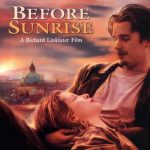The context of gameplay, the enchanting interactive and immersive effects, plays a role in limiting rationality and enabling exploitation. Continue reading

February 12, 2021
by Aesthetics for Birds
1 Comment


February 12, 2021
by Aesthetics for Birds
1 Comment
The context of gameplay, the enchanting interactive and immersive effects, plays a role in limiting rationality and enabling exploitation. Continue reading

October 27, 2020
by Aesthetics for Birds
12 Comments
Is it ever morally wrong to commit violent or immoral acts in a video game? Is it ever morally wrong to harm a photograph? Yes. Let me explain why. Continue reading

October 7, 2020
by Aesthetics for Birds
0 comments
Julie Delpy discusses the importance of philosophy in her films, in education, and for society today. Continue reading
August 3, 2020
by C. Thi Nguyen
15 Comments
Role-playing games have a lot to teach us about the importance of community and playfulness in the classroom. Continue reading
June 23, 2020
by Aesthetics for Birds
0 comments
As we celebrate the endurance and ground-breaking achievements of the past thirty years, I invite you to imagine where post-revolutionary feminist aesthetics will end up in 2030, 2040, and beyond. Continue reading

June 18, 2020
by Aesthetics for Birds
4 Comments
Removing statues is powerfully symbolic; how we treat them in their death is too. Continue reading
June 16, 2020
by Aesthetics for Birds
0 comments
These days, when I think of singing with others, I am reminded in a very different way that sounds are physical waves. Continue reading
June 10, 2020
by Aesthetics for Birds
0 comments
In March of this year, noted philosopher of film Dan Shaw passed away.
April 16, 2020
by Alex King
0 comments
What follows is a guest post by Jay Miller. Recently, a draft proposal of a presidential executive order was obtained and printed by the Chicago Sun-Times. Under the banner of “Making Federal Buildings Beautiful Again,” the leaked document effectively mandates the classical style of architecture for all federal buildings in the U.S. It seeks to right the wrongs of modernist architecture by officially proclaiming the classical style of architecture “the preferred and default style” for federal buildings. The proposal proceeds by first identifying the culprits: It blames the federal government for “largely abandon[ing] traditional, classical designs” in the 1950s; it accuses the General Services Administration (GSA) of overseeing “aesthetic failures”; even more specifically, it takes aim at the “Guiding Principles for Federal Architecture,” drafted in 1962 by an aide of the Kennedy administration, for having “implicitly discouraged” classical and other designs “known for their beauty.” Yet, the real target of … Continue reading
March 19, 2020
by Aesthetics for Birds
0 comments
What follows is a guest post by Patrick Fessenbecker. In a recent column in The New York Times, Ross Douthat contends that English professors aren’t having the right kind of arguments. Reflecting on the analysis of the decline of the humanities in a series of essays in the Chronicle of Higher Education over the last year, Douthat makes a familiar diagnosis: the problem is that we literature professors no longer believe in the real value of the objects we study. Engaging Simon During’s account of the decline of the humanities as a “second secularization” in particular, Douthat argues that secular attempts to defend the humanities will fail just as surely as secular attempts to defend religious ethics and norms did: it doesn’t work unless you really believe in the thing. Correspondingly, the debates literary scholars are having about how to expand the range of texts and subjects we teach are … Continue reading